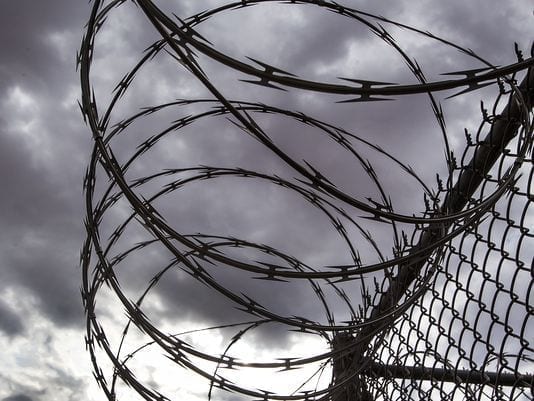The president-elect isn’t notorious for shying away from a challenge. Between calls to scrap Obamacare and build a wall along the Mexican border, the billionaire-in-chief has spoken out in support of a penal system not propped up by taxpayers. Back in March, Trump made a brief remark expressing his interest in keeping private prisons running. “It seems to work a lot better,” he said of contract jails, speaking to an audience during a town hall meeting in Green Bay, Wisconsin.
That single sentence spoken ten months ago, combined with a surprising election win, was all it took drive the Corrections Corporation of America’s stock up by forty-seven percent. Before Trump’s unexpected victory over Clinton, shareholder faith and market expectations for the CCA had been waning. The Justice Department had laid out plans to return many of the 65 CCA-managed detention centers back over to the Bureau of Prisons’ authority.
Only midway through August had the Department of Justice announced its effort to curb the private prison industry. Long a source of both contention and controversy, the practice of turning jailhouses into corporate holdings should have passed its prime. Fewer Americans are incarcerated in federally-owned cells than ever before. In less than three years, approximately 25,000 inmates have left the system, freeing up their bunks to make much needed space. Journalists, activists, politicians, and experts alike have all agreed that the risks of private prisons simply aren’t worth a scarce few savings.
The new year seems to be boding well for the reintroduction of old ideas.
What might be good news for the CCA is not a good omen for anyone interested in maintaining law and order behind bars or even beyond the barbed fences ex-convicts leave behind upon release. The Department of Justice’s August decision to not renew private prison contracts was based on the results of an intensive investigation run by the Office of the Inspector General. Reviewing a number of metrics related to safety and well-being, the report compared the performance of federal-run prisons to those administered by private-sector firms such as the CCA.

On almost every front, the Bureau of Prisons fared better than its contracted competition. Federal facilities saw, on the whole, less violence among inmates, fewer assaults on staff, and an eighth of contraband seizures versus private prisons. Even in cases where changes were made to improve safety, contract jails didn’t stack up. They were often over-crowded, with some inmates being placed in disciplinary wards or solitary confinement because there weren’t enough beds for prisoners in the general population. Health and medical services were scarce and couldn’t be rendered quickly.
Ironically, the cost-cutting benefits touted by companies like the CCA hardly manage to compensate for their safety shortcomings. Research run by the University of Utah in 2007 and replicated in other states suggests that privatization doesn’t offer the same savings its presidential endorsement suggests. While contract prisons do save a few percent over their Bureau of Prison partners, the DoJ didn’t think they were financial lifesavers.
Feeling sympathy for the two-million Americans incarcerated across the country isn’t always easy. Politicians like Donald Trump make names for themselves proclaiming their desire to be “tough on crime.” Spending taxpayer money on programs designed to help prisoners gain educations or stay safe can seem downright irresponsible when many school districts remain chronically under-funded.
However, the wisdom of handing over the keys which lock away career criminals and low-level offenders to entities which have a stake in seeing people kept behind bars is questionable. Private prisons don’t seem to offer any appreciable benefits over their federal counterparts – they don’t keep prisoners safe, they don’t keep safe staff, and they don’t often have quality rehabilitative programs to keep the public safe from the risks of recidivism.
A single sentence spoken in March and a day in November together managed to revive investment into an industry which has outlived its usefulness. The Department of Justice tried to move past the practice of granting prison contracts to private companies, but the forces of popular opinion and popular politicians seem now to fly in the face of reason.
Sources:
DOJ: Private prisons are more dangerous than government prisons — for inmates and guards
Is Donald Trump Private Prison Companies’ Last Hope?
Justice Department says it will end use of private prisons
Private Prisons Found to Offer Little in Savings
Prisons Run by C.E.O.s? Privatization Under Trump Could Carry a Heavy Price
Trump Sets Private Prisons Free


Join the conversation!